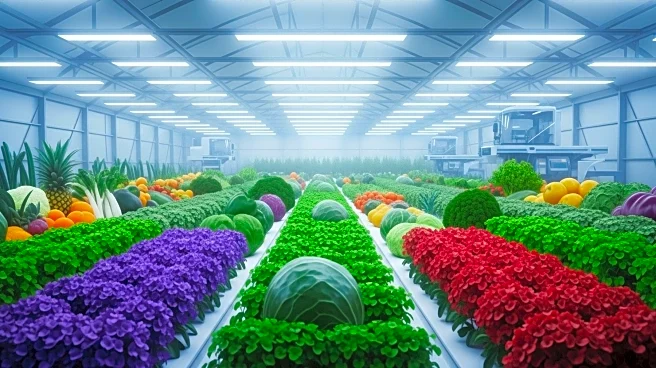What is the story about?
What's Happening?
The global genetic engineering in agriculture market is expected to grow significantly, reaching USD 2.59 billion by 2034 from USD 1.14 billion in 2024. This growth is driven by increased global food demands and the emphasis on sustainable farming practices. North America currently dominates the market, with Asia Pacific anticipated to experience substantial growth. Key technologies contributing to this expansion include transgenic techniques and gene editing methods like CRISPR/Cas. The market is characterized by advancements in pest resistance, herbicide tolerance, and abiotic stress tolerance traits, which are crucial for enhancing crop yields and resilience.
Why It's Important?
The projected growth of the genetic engineering in agriculture market underscores the increasing importance of biotechnology in addressing global food security challenges. As populations rise and climate change impacts agriculture, genetic engineering offers solutions for developing crops with improved traits, such as pest resistance and climate adaptability. This market expansion could lead to more efficient and sustainable farming practices, reducing reliance on chemical inputs and enhancing food production. The involvement of major biotech firms and supportive regulations further accelerates innovation and adoption of these technologies.
Beyond the Headlines
The growth of genetic engineering in agriculture raises ethical and regulatory considerations, particularly regarding the use of genetically modified organisms (GMOs). Balancing innovation with safety and public acceptance remains a challenge. Additionally, the integration of AI in genetic engineering processes could revolutionize crop development, offering precise and efficient solutions for enhancing agricultural productivity. As the market evolves, stakeholders must navigate complex regulatory landscapes and address public concerns about GMO safety and environmental impact.

















